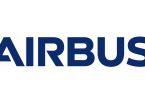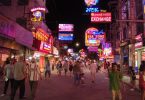As we noted in last week’s article Uber’s success and growing popularity worldwide has generated both acceptance and encouragement in some countries and States and fierce opposition from the long established taxi industry. Last week we examined several class action lawsuits brought by drivers [O’Connor v. Uber (California)] and customers [Ehret v. Uber (California)] challenging Uber’s alleged misrepresentation that it’s mandatory “gratuity” was for its drivers when, in fact, Uber kept a portion of the “gratuity” for itself. This week we take a look at three more lawsuits against Uber, one, brought by non-Uber Taxi and livery drivers who allege that “Uber misrepresents its rates, misidentifies itself as a transportation company and illegally operates in violation of Chicago Municipal Code provisions regulating the taxi and livery industries” [Manzo v. Uber (Illinois)] and two brought by Taxi and livery competitors that “allege that (Uber) violates various federal (the Lanham Act) and state false advertising and unfair competition laws and …taxicab ordinances by providing a private car service that allows users to call taxicabs…without complying with (local) taxicab regulations” [Boston Cab Dispatch, Inc. v. Uber (Massachusetts)] and “alleging that Uber competes unfairly by misrepresenting certain features of its services, misleading customers as to an association between Uber and (Taxi and livery services) and encouraging taxi drivers to breach their agreement with Plaintiffs” [Yellow Group LLC v. Uber (Illinois)].
Non-Uber Drivers Against Uber
In Manzo and Alsubbah v. Uber [2014 WL 3495401], a bilateral class action, a class of “taxi and livery drivers sue Uber…and (a defendant class of) taxi and livery drivers who use Uber, alleging that Uber misrepresents its rates, misidentifies itself as a transportation company and illegally operates in violation of Chicago Municipal Code provisions regulating the taxi and livery industries. Plaintiffs base their lawsuit on the Illinois Consumer Fraud and Deceptive Business Practices Act (ICFA) and the Illinois Uniform Deceptive Trade Practices Act (IUDTPA). Uber moved to dismiss the complaint asserting, inter alia, that Dial A Car, Inc. v. Transportation, Inc. [82 F. 3d 484, 490] “stands for proposition that a plaintiff cannot use a Lanham Act claim to declare the defendant’s conduct unlawful under a local taxicab regulation when the taxicab commission has not yet done so. Uber contends that Dial A Car applies equally here because the Lanham Act is the federal equivalent to the ICFA and IUDTPA”.
Misleading Consumers
In Count I “Manzo (alleges) that Uber deceptively represented on its website that Uber taxis charge ‘standard taxi rates’ when, in fact, riders were charged the meter fare plus a 20% ‘gratuity’. Plaintiffs also base Count I on the allegation that the ‘gratuity’ was actually split between the taxi’s driver and Uber. The claim against (the defendant class) stems (their) purported agency relationship with Uber and (its) concealment of the fact the (they split) with Uber any ‘gratuities’ (they receive) on Uber rides”. In sustaining Count I the Court found Manzo’s allegations [“Uber’s misrepresentation of its fares as ‘standard’ and it misidentification of a portion of the fare as a ‘gratuity’ have the tendency to deceive, the deception was material, and the statements drew customers away from Manzo’s taxi service and toward Uber” and “Uber published ‘false, misleading and confusing representations suggesting that Uber is a transportation service provider when, in fact, it is not” and “Uber’s misleading statements harm (Manzo) because ‘if fare-paying passengers knew and understood that Uber actually disavowed control over and/or responsibility for the suitability, safety and quality of ‘its’ taxi drivers and vehicles, those passengers would have foregone and would likely forego arranging for taxi transportation through [Uber]…and instead resort to conventional curb-side hail or call-and-dispatch taxi transportation provided by Manzo’”] were “plausibly alleged”.
Violating Chicago Municipal Code
In Count II “Alsubbah, a livery driver, sues Uber and [defendant Lucky Livery, Inc.] pursuant to ICFA and IUDTPA (alleging) that Uber violates Chicago Municipal Code provisions regulating taxi and livery services and that Uber misrepresents its livery fares as being at or below fares charged by other livery services”. The Court dismissed part of Alsubbah’s claim “premised on violations of the Chicago Municipal Code (because it) is barred by the…rationale in Dial A Car. However, the Court denies the motion to dismiss with regard to (the) allegation that Uber misrepresents its livery rates”.
Rates Below Market Prices
In Count III “Manzo asserts that Uber misrepresents that its livery rates are priced at or below the market price for livery services provided by other livery services”. In dismissing this claim the Court noted that Manzo “does not allege that (this) statement harms his taxi business”.
Boston Cabbies v. Uber
In Boston Cab Dispatch, Inc. v. Uber [2014 WL 1338148] the plaintiff alleged that Uber “violates various federal and state false advertising and unfair competition laws and Boston taxicab ordinances by providing a private car service that allows users to call taxicabs associated with Boston Cab with other dispatch services without complying with Boston taxicab regulations…The subject dispute arose after Uber entered the (Boston) market for private transportation services…The crux of plaintiffs’ complaint is that Uber has gained an unfair competitive advantage over traditional taxicab dispatch services and license-holders because it avoids the costs and burdens of complying with extensive regulations designed to ensure that residents of Boston have access to fairly priced and safe transportation options throughout the city and yet reaps the benefits of others’ compliance with those regulations. The main source of regulation of the Boston taxicab industry is the Police Commissioner for the City of Boston (who) requires anyone who drives and is ‘in charge of’ a ‘hackney carriage’ (i.e. taxicab) to possess a license known as a ‘taxicab medallion’ (and comply with Rule 403 which requires) all taxicab operators to, inter alia, possess medallions, maintain a properly equipped and functioning taxicab, refrain from cell phone use while operating a taxicab and belong to an approved dispatch service or ‘radio association’”.
Medallions & Cell Phones
“Uber does not own any taxicabs or taxicab medallions. Instead, taxicab drivers who are subject to Rule 403, own or lease medallions and belong to radio associations such as Boston Cab (and) have agreed to be available for hire through Uber while they are working shifts and subject to dispatch by their radio associations. Their fares are calculated based on the flat rate applicable to all Boston taxicab drivers. Uber adds a $1 ‘fee’ and a 20% ‘gratuity’ to the flat rate and therefore the final charge exceeds the maximum that taxicabs are permitted to charge under Rule 403, While Uber’s website represents that 20% gratuity is ‘for the driver’, drivers in fact only receive a 10% gratuity and Uber retains the other 10%”.
No Harm But Diversion Of Fares
As noted by the Court “There is no evidence…that Boston Cab has suffered any harm as a result of members of its association picking up passengers who request a vehicle through the Uber app rather than through Boston Cab’s dispatch service”. Nonetheless Boston Cab asserts that “By falsely portraying taxis, (including Boston Cab’s) 500 cabs, as one choice among several Uber-affiliated forms of transportation that appear on a smartphone screen, Uber diverts fares that would go to licensed Boston taxis if Uber did not falsely claim taxes were part of its affiliated businesses. This diversion of business has already caused a decrease in the demand for plaintiffs’ cabs, a diminution in the number of cabs leased and a loss of revenue”.
Lanham Act: False Association
Boston Cab alleges that Uber violates the Lanham Act “by misrepresenting that it is affiliated with Boston Cab” by using Boston Cab’s “colors and markings” which “is likely to cause confusion…or to deceive as to the affiliation, connection or association of such person with another person…shall be liable in a civil action by any person who believes that he or she…is likely to be damaged”. The Court dismissed this claim because Boston Cab “failed to adequately (plead) damages under the Lanham Act.”
Deceptive Acts & Unfair Competition
The Court also dismissed Count III which alleged that a variety of Uber misrepresentations [e.g., affiliated with medallion owners and radio associations, pays full 20% gratuity to taxi drivers, its service is lawful under Boston Taxi Rules] because Boston Cab failed to meet pleading requirements and sustained no cognizable damages. However, the Court found that Boston Cab had adequately pled both statutory and common law versions of unfair competition in that Uber is “‘operating’ its service without incurring the expense of compliance with Massachusetts law and Boston ordinances”
Chicago Cabbies v. Uber
In Yellow Group LLC v. Uber [2014 WL 3396055] a group of about thirty “taxi medallion owners, taxi affiliations and livery service providers sued (Uber) alleging that Uber competes unfairly by misrepresenting certain features of its services, misleading customers as to an association between Uber and plaintiffs and encouraging taxi drivers to breach their agreements with plaintiffs”. The Court granted Uber’s motion to dismiss the complaint in part.
Confusion & Association
“Uber customers can request a ride via three types of vehicles: a medallion-bearing taxi, a livery vehicle or an UberX vehicle [fn4. “UberX is a service in which non-commercially licensed drivers use their personal vehicles as unlicensed taxicabs”]. Taxi, livery and non-commercially licensed drivers [UberX] that subscribe to Uber use the (Uber app) to pick up rides in their vicinity…Some Uber drivers are associated with Flash Cab, Yellow Cab or Your Private Limousine. As a result, when a customer orders a taxi via Uber, the driver who accepts the fare may arrive in a vehicle bearing Flash Cab or Yellow Cab trademarks. Likewise, when a customer used Uber to request a limousine, the driver who provides the customer’s ride may be affiliated with Your Private Limousine”.
Lanham Act Claims
Plaintiffs’ Lanham Act claims assert that Uber misrepresents its rates [Uber’s website states that “Uber taxis charged ‘standard taxi rates’ when in fact riders were charged the meter fare plus a 20% gratuity”], licensure [Uber’s “blog post (which stated) that all UberX vehicles were ‘licensed by the city of Chicago and driven by a licensed chauffeur”] and insurance [Uber allegedly stated that ‘there will be a $2,000,000 insurance policy applicable to ridesharing trips’ and later claimed that UberX drivers and passengers would be subject to $1 million in coverage. Plaintiffs contend that this misrepresents reality because Uber does not provide any insurance coverage to drivers and passengers”]. The Court was “satisfied that the Taxi Affiliation plaintiffs and Your Private Limousine have plausibly alleged that Uber’s deceptive advertising has caused customers to refrain from using their dispatch services. Plaintiffs further plausibly allege that this diversion of business harms the economic value of their business and their reputation”. As for harm, the Court concluded that these two plaintiffs state “a plausible claim that Uber’s alleged misrepresentations regarding Uber’s rates and UberX drivers’ licensure and insurance caused them harm”. The Court also found adequate plaintiffs’s allegations that Uber’s actions were “likely to confuse Uber customers regarding an association between Uber and Flash or Yellow Cab and that this confusion harms Flash and Yellow Cab’s taxi dispatch business”.
Conclusion
The number and nature of the lawsuits being brought against Uber, particularly, by competitors reflects just how revolutionary and threatening the sharing economy [Airbnb, Uber, Lyft and others] is to traditional and well entrenched travel service providers such as hotels and taxi cab companies. Stay tuned.
The author, Justice Dickerson, been writing about Travel Law for 38 years including his annually-updated law books, Travel Law, Law Journal Press (2014), and Litigating International Torts in U.S. Courts, Thomson Reuters WestLaw (2014), and over 300 legal articles many of which are available at www.nycourts.gov/courts/9jd/taxcertatd.shtml .
This article may not be reproduced without the permission of Thomas A. Dickerson.
(eTN): Uber lawsuits: Competitors allege unfair competition and false advertising | re-post license | post content






















